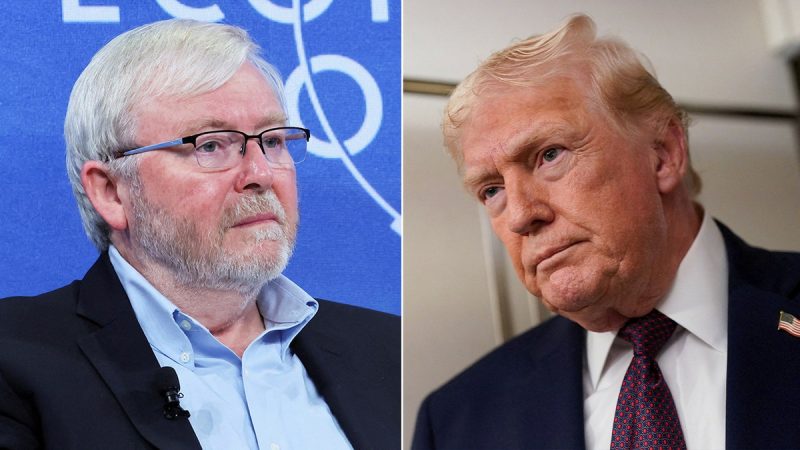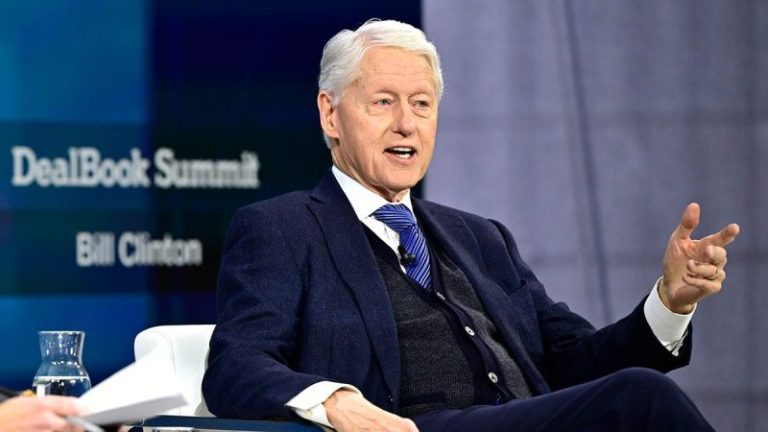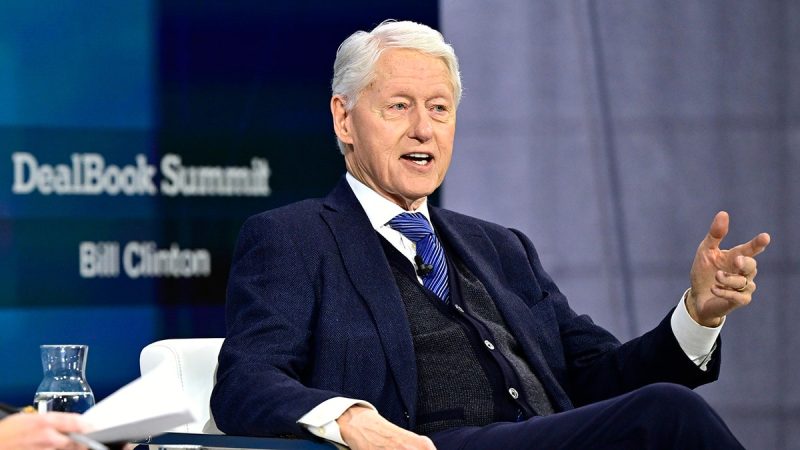CALGARY, AB / ACCESS Newswire / January 13, 2026 / Valeura Energy Inc. (TSX:VLE,OTC:VLERF)(OTCQX:VLERF) (‘Valeura’ or the ‘Company’) announces: (i) the Company’s Q4 2025 performance was in line with its guidance outlook for 2025 and resulted in a new record cash position; (ii) completion of a successful drilling campaign at Block B5/27 drove strong ongoing oil production and is expected to contribute to reserves replacement; and (iii) a guidance outlook for 2026 supporting its objective to continue generating long-term value for shareholders.
Q4 and Full Year 2025 Highlights
-
Record cash position of US$305.7 million as at 31 December 2025 with no debt;
-
Oil production averaged 24,721 bbls/d in Q4 2025, resulting in full year average oil production of 23,242 bbls/d(1) for 2025;
-
2.523 million bbls of oil were sold in Q4 2025, with 8.466 million bbls sold for the full year 2025;
-
Price realisations in Q4 2025 averaged US$64.0/bbl, resulting in revenue of US$161.4 million, and US$594.4 million of revenue for the full year 2025;
-
Greenhouse gas (‘GHG’) intensity reduced by 13% for full year 2025, yielding a 30% reduction since Valeura originally acquired its Thailand portfolio in 2023; and
-
Nine production-oriented development wells were completed at the Jasmine and Ban Yen fields in Q4 2025 with 100% success rate, including a new record length for a horizontal well in the Gulf of Thailand.
2026 Guidance Highlights
-
Full year oil production mid-point of 21,000 bbls/d(1);
-
Capex and exploration spending mid-point of US$185 million, including approximately US$70 million associated with the Wassana field redevelopment; and
-
Adjusted Opex mid-point of US$205 million(2).
(1) Working interest share production, before royalties.
(2) Adjusted Opex is a non-IFRS financial measure, more fully described in Valeura’s Management’s Discussion and Analysis dated 14 November 2025. Includes lease spending of US$25 million.
Dr. Sean Guest, President and CEO commented:
‘We closed out 2025 with strong production performance and an even stronger financial position. Our Q4 drilling programme at Jasmine and Ban Yen was ambitious and innovative, and delivered a 100% success rate, with all wells being completed as producers. All across the business, our team remains committed to this type of world class performance and I believe this is reflected in the continual strengthening of our balance sheet, which now includes over US$300 million in cash, and no debt.
That commitment to excellence is also apparent in our strong safety performance and positive direction of travel on key environmental, social, and governance metrics. We saw no deviations from our high standards during the year and continue to show progress in our GHG intensity, which has now been reduced by approximately 30% under Valeura’s operatorship.
As we raise our sights to the year ahead, our long-term objective of delivering 20 – 25 mbbls/d(1) from our four producing assets remains intact, with this year’s performance expected around 21 mbbls/d(1), a number we see as a lull in advance of the start-up of our Wassana field redevelopment, which remains on track for first oil production in Q2 2027.
We continue to aggressively pursue other growth ambitions as well. The spirit of collaboration is strong between our team and our operating partners both in the large farm-in blocks in the Gulf of Thailand, and in our deep gas play in Türkiye where testing operations are now underway.
Our aspirations to grow inorganically are continuing as a priority. We believed that our appetite for larger, more transformative deals is well-supported, both by the financial wherewithal we bring to bear, and by the rich opportunity set we see emerging within our core Asia-Pacific region.’
(1) Working interest share oil production, before royalties.
Q4 and Full Year 2025 Overview
Working interest share oil production before royalties averaged 24.7 mbbls/d in Q4 2025. This was an increase of 7.6% over the prior quarter, reflecting the impact of new oil production wells coming on stream at Block B5/27, in addition to ongoing steady operations at the Company’s other producing fields. On a full year basis, working interest share oil production before royalties was higher as well, averaging 23.2 mbbls/d in 2025, an increase of 1.8% over 2024.
Oil sales totalled 2.523 million bbls in Q4 2025, which was higher than the 2.274 million bbls produced in the quarter, as a result of sales from crude oil held in inventory at the beginning of the quarter. The resultant revenue was US$161.4 million, based on an average sales price of US$64.0/bbl. The Company continues to realise a premium to the benchmark Brent crude oil price. For the full year 2025, the effect of quarterly over-lift / under-lift positions is negligible, with oil sales totalling 8.466 million bbls, a figure which is very close to the full year’s production of 8.483 million bbls. Valeura’s average 2025 sales price was US$70.2/bbl.
Valeura’s cash position strengthened to a new high of US$305.7 million at 31 December 2025, with no debt.
Operations Update
Operations progressed safely throughout 2025, and with no deviations from the Company’s high standards for environmental, social, and governance stewardship. Of note, Valeura is continuing to pursue efficiency gains across its portfolio that have a positive impact on the Company’s GHG emissions. Valeura estimates that its GHG intensity has reduced by 13% compared to the Company’s 2024 performance, and overall has achieved a 30% reduction since originally acquiring its Thailand portfolio.
Construction activities of a new-build central processing platform (‘CPP’) for the Wassana field redevelopment are progressing ahead of schedule. The project is now approximately 45% complete, underpinning management’s confidence in achieving first oil production from the redeveloped Wassana field (100% operated interest) on time, as planned, in Q2 2027. Moreover, with the majority of project costs either locked in or subject to fixed-price contracts, the Wassana field redevelopment project also remains on budget.
At the Company’s deep gas play in the Thrace basin of Türkiye, Transatlantic Petroleum LLC (‘Transatlantic’), who are conducting operations on Valeura’s behalf, have re-entered and hydraulically stimulated the Devepinar-1 well. Gas has been continually produced to surface through the well’s casing for over three weeks. With this success, Transatlantic has opted to continue work on the well, and is now installing production tubing to facilitate a longer-term production test. Transatlantic has satisfied its earning requirements and is now entitled to a 50% undivided working interest in the western portion of the Company’s lands, as further described in Valeura’s 15 October 2025 announcement. Once approved by the regulator, Transatlantic will hold a 50.0% working interest in the western portion of the Company’s lands, Valeura will hold 31.5%, and Pinnacle Turkey, Inc. will hold the remaining 18.5%. Valeura’s working interest in the eastern portion of the lands (Banarli licences) remains at 100%, subject to Transatlantic completing the drilling and testing of a new well. The Company intends to release more details on the Devepinar-1 well test and the future plans for the deep gas play later in Q1 2026.
Block B5/27 Drilling
Valeura has just completed the drilling of one deviated and eight horizontal wells on the Jasmine and Ban Yen fields at Block B5/27 in the Gulf of Thailand (100% operated interest). The drilling programme primarily focused on accessing unswept oil accumulations within producing reservoirs. All wells were successful and have been completed as producers. As a result, oil production rates before royalties from Block B5/27 have increased from approximately 7,300 bbls/d over the seven-day period prior to start of the drilling programme, to recent rates of approximately 8,600 bbls/d over the seven-day period immediately following the drilling programme.
Several of the wells were engineered to intersect additional appraisal targets while drilling toward their primary development targets. As a result, Valeura has identified various additional oil accumulations which will form the basis of future infill drilling campaigns on Block B5/27. This success is expected to add to the ultimate production potential of the block, which has already exceeded its production expectations many times over, and has seen its economic field life extended every year under Valeura’s operatorship.
Since taking over operatorship of its Thai portfolio in 2023, Valeura has been introducing new technologies and drilling approaches which are expected to increase the ultimate recovery of the fields and lower costs. One well in the recent drilling programme, JSB-28ST2H, achieved a new record as the longest horizontal well interval ever drilled in the Gulf of Thailand, at 3,875′. In addition, two of the wells drilled from the Jasmine B platform used a novel new approach whereby the shallower sections of the pre-existing wells were re-used, with the new well bores being drilled as sidetracks through the existing 7′ casing. This approach reduces drilling time and mitigates certain downhole drilling risks. Further, all horizontal wells drilled in this campaign were completed using autonomous inflow control devices which reduces the inflow of non-oil fluids into the wellbore. This technology has now been adopted extensively by Valeura as a value-enhancing innovation, across all its Gulf of Thailand assets.
2026 Work Programme andGuidance Synopsis
Valeura currently has one drill rig on contract, with a charter term spanning January through August 2026. The Company’s planned work programme for 2026 entails drilling an aggregate of 16 development and appraisal wells on the Jasmine, Nong Yao, and Manora fields. The overall objective of the development and appraisal programme is to mitigate natural production declines while also continuing the Company’s multi-year performance of adding reserves. The base plan also includes the planned drilling of two exploration wells across its operated Gulf of Thailand portfolio.
The Company is planning total capex and exploration spending of US$175 – 195 million in 2026. This amount includes approximately US$70 million for the completion of construction and installation of the new CPP at the Wassana field, in preparation for development drilling in Q1 2027. The Company is planning exploration expenditure of approximately US$7 million.
Valeura continues to model that its portfolio of four producing Gulf of Thailand fields will deliver working interest share oil production before royalties within the range of 20,000 – 25,000 bbls/d into the 2030’s. The Company’s 2026 work programme is in line with this expectation, with full year average production guidance of 19,500 – 22,500 bbls/d, or a mid-point of 21,000 bbls/d (working interest share, before royalties).
Adjusted opex in 2026 is forecast as US$190 – 220 million and at the midpoint would be the lowest opex that the Company has achieved since assuming operatorship in Thailand. Of note, adjusted opex guidance includes anticipated spending of approximately US$25 million on leases related to floating production, storage, and offloading vessels employed across the Company’s operations.
The Company’s production and capex forecast is predicated on the Company having one drilling rig on contract for approximately eight months of the year. Should prevailing economic conditions warrant revising the drilling programme to include more drilling, Valeura would update its guidance expectations accordingly.
Valeura is also actively working with PTT Exploration and Production Plc (‘PTTEP’) to pursue both exploration and development planning on Blocks G1/65 and G3/65 in the Gulf of Thailand, where Valeura is farming in to earn a 40% non-operated working interest (the ‘Farm-in Transaction’). High priority work streams are focussed on the Bussabong gas development area, which could result in an investment decision in 2026, and the Nong Yao northeast oil exploration area, to define a suitable timeframe for exploration drilling. Upon completion of the Farm-in Transaction, Valeura intends to more fully articulate a work programme for both blocks and will update the guidance at that time. Completion of the Farm-in Transaction requires government approval, which is expected following Thailand’s general election in Q1 2026.
Upcoming Announcements
Valeura intends to announce the results of a third-party reserves and resources evaluation as of 31 December 2025 in approximately the second half of February 2026. Thereafter, the Company plans to release its full audited financial and operating results for the year ended 31 December 2025 on approximately 18 March 2026.
For further information, please contact:
Valeura Energy Inc. (General Corporate Enquiries)+65 6373 6940
Sean Guest, President and CEO
Yacine Ben-Meriem, CFO
Contact@valeuraenergy.com
Valeura Energy Inc. (Investor and Media Enquiries) +1 403 975 6752 / +44 7392 940495
Robin James Martin, Vice President, Communications and Investor Relations
IR@valeuraenergy.com
Contact details for the Company’s advisors, covering research analysts and joint brokers, including Auctus Advisors LLP, Beacon Securities Limited, Canaccord Genuity Ltd (UK), Cormark Securities Inc., Research Capital Corporation, Roth Canada Inc., and Stifel Nicolaus Europe Limited, are listed on the Company’s website at www.valeuraenergy.com/investor-information/analysts/.
About the Company
Valeura Energy Inc. is a Canadian public company engaged in the exploration, development and production of petroleum and natural gas in Thailand and in Türkiye. The Company is pursuing a growth-oriented strategy and intends to re-invest into its producing asset portfolio and to deploy resources toward further organic and inorganic growth in Southeast Asia. Valeura aspires toward value accretive growth for stakeholders while adhering to high standards of environmental, social and governance responsibility.
Additional information relating to Valeura is also available on SEDAR+ at www.sedarplus.ca.
Advisory and Caution Regarding Forward-Looking Information
Certain information included in this news release constitutes forward-looking information under applicable securities legislation. Such forward-looking information is for the purpose of explaining management’s current expectations and plans relating to the future. Readers are cautioned that reliance on such information may not be appropriate for other purposes, such as making investment decisions. Forward-looking information typically contains statements with words such as ‘anticipate’, ‘believe’, ‘expect’, ‘plan’, ‘intend’, ‘estimate’, ‘propose’, ‘project’, ‘target’ or similar words suggesting future outcomes or statements regarding an outlook. Forward-looking information in this news release includes, but is not limited to, anticipated 2026 full year oil production rates; anticipated capex and exploration spending in 2026, including the proportion included for the Wassana redevelopment project and for exploration expenditure; anticipated 2026 adjusted opex, and the proportion thereof relating to leases; the Company’s reduced GHG intensity representing an ongoing ‘direction of travel’; the Company’s ability to realise its long-term objective of delivering 20 – 25 mbbls/d from its four producing assets; timing for development drilling and for first oil production from the Wassana field redevelopment; the Company’s continued aggressive pursuit of its growth ambitions; the ability for the Company’s financial wherewithal and opportunity set to support inorganic growth; the Company continuing to realise a premium to the benchmark Brent crude oil price; the Company continuing to pursue and achieve efficiency gains across its portfolio; the transfer of working interest in the deep gas play to Transatlantic and resultant working interests of the parties, and the Company obtaining regulatory approval thereof; the Company’s intention to release more details on the Devepinar-1 well test and the future plans for the deep gas play and the timing thereof; additional oil accumulations at the Jasmine and Ban Yen fields forming the basis of future infill drilling campaigns on the block; drilling success adding to the ultimate production potential of the B5/27 Block; new technologies and drilling approaching resulting in an increase in the ultimate recovery of its fields; the duration and composition of Valeura’s 2026 drilling programme; the Company’s anticipated exploration expenditure for 2026; the ability for drilling to mitigate natural production declines while also continuing the Company’s multi-year performance of adding reserves; and government approval and timing for completion of the Farm-in Transaction.
Forward-looking information is based on management’s current expectations and assumptions regarding, among other things: political stability of the areas in which the Company is operating; continued safety of operations and ability to proceed in a timely manner; continued operations of and approvals forthcoming from governments and regulators in a manner consistent with past conduct; future drilling activity on the required/expected timelines; the prospectivity of the Company’s lands; the continued favourable pricing and operating netbacks across its business; future production rates and associated operating netbacks and cash flow; decline rates; future sources of funding; future economic conditions; the impact of inflation of future costs; future currency exchange rates; interest rates; the ability to meet drilling deadlines and fulfil commitments under licences and leases; future commodity prices; the impact of the Russian invasion of Ukraine; royalty rates and taxes; future capital and other expenditures; the success obtained in drilling new wells and working over existing wellbores; the performance of wells and facilities; the availability of the required capital to funds its exploration, development and other operations, and the ability of the Company to meet its commitments and financial obligations; the ability of the Company to secure adequate processing, transportation, fractionation and storage capacity on acceptable terms; the capacity and reliability of facilities; the application of regulatory requirements respecting abandonment and reclamation; the recoverability of the Company’s reserves and contingent resources; future growth; the sufficiency of budgeted capital expenditures in carrying out planned activities; the impact of increasing competition; the ability to efficiently integrate assets and employees acquired through acquisitions; global energy policies going forward; future debt levels; and the Company’s continued ability to obtain and retain qualified staff and equipment in a timely and cost efficient manner. In addition, the Company’s work programmes and budgets are in part based upon expected agreement among joint venture partners and associated exploration, development and marketing plans and anticipated costs and sales prices, which are subject to change based on, among other things, the actual results of drilling and related activity, availability of drilling, offshore storage and offloading facilities and other specialised oilfield equipment and service providers, changes in partners’ plans and unexpected delays and changes in market conditions. Although the Company believes the expectations and assumptions reflected in such forward-looking information are reasonable, they may prove to be incorrect.
Forward-looking information involves significant known and unknown risks and uncertainties. Exploration, appraisal, and development of oil and natural gas reserves and resources are speculative activities and involve a degree of risk. A number of factors could cause actual results to differ materially from those anticipated by the Company including, but not limited to: the ability of management to execute its business plan or realise anticipated benefits from acquisitions; the risk of disruptions from public health emergencies and/or pandemics; competition for specialised equipment and human resources; the Company’s ability to manage growth; the Company’s ability to manage the costs related to inflation; disruption in supply chains; the risk of currency fluctuations; changes in interest rates, oil and gas prices and netbacks; potential changes in joint venture partner strategies and participation in work programmes; uncertainty regarding the contemplated timelines and costs for work programme execution; the risks of disruption to operations and access to worksites; potential changes in laws and regulations, the uncertainty regarding government and other approvals; counterparty risk; the risk that financing may not be available; risks associated with weather delays and natural disasters; and the risk associated with international activity. See the most recent annual information form and management’s discussion and analysis of the Company for a detailed discussion of the risk factors.
The forward-looking information contained in this new release is made as of the date hereof and the Company undertakes no obligation to update publicly or revise any forward-looking information, whether as a result of new information, future events or otherwise, unless required by applicable securities laws. The forward-looking information contained in this new release is expressly qualified by this cautionary statement.
This news release does not constitute an offer to sell or the solicitation of an offer to buy securities in any jurisdiction, including where such offer would be unlawful. This news release is not for distribution or release, directly or indirectly, in or into the United States, Ireland, the Republic of South Africa or Japan or any other jurisdiction in which its publication or distribution would be unlawful.
Neither the Toronto Stock Exchange nor its Regulation Services Provider (as that term is defined in the policies of the Toronto Stock Exchange) accepts responsibility for the adequacy or accuracy of this news release.
This information is provided by Reach, the non-regulatory press release distribution service of RNS, part of the London Stock Exchange. Terms and conditions relating to the use and distribution of this information may apply. For further information, please contact rns@lseg.com or visit www.rns.com.
SOURCE: Valeura Energy Inc.
View the original press release on ACCESS Newswire































